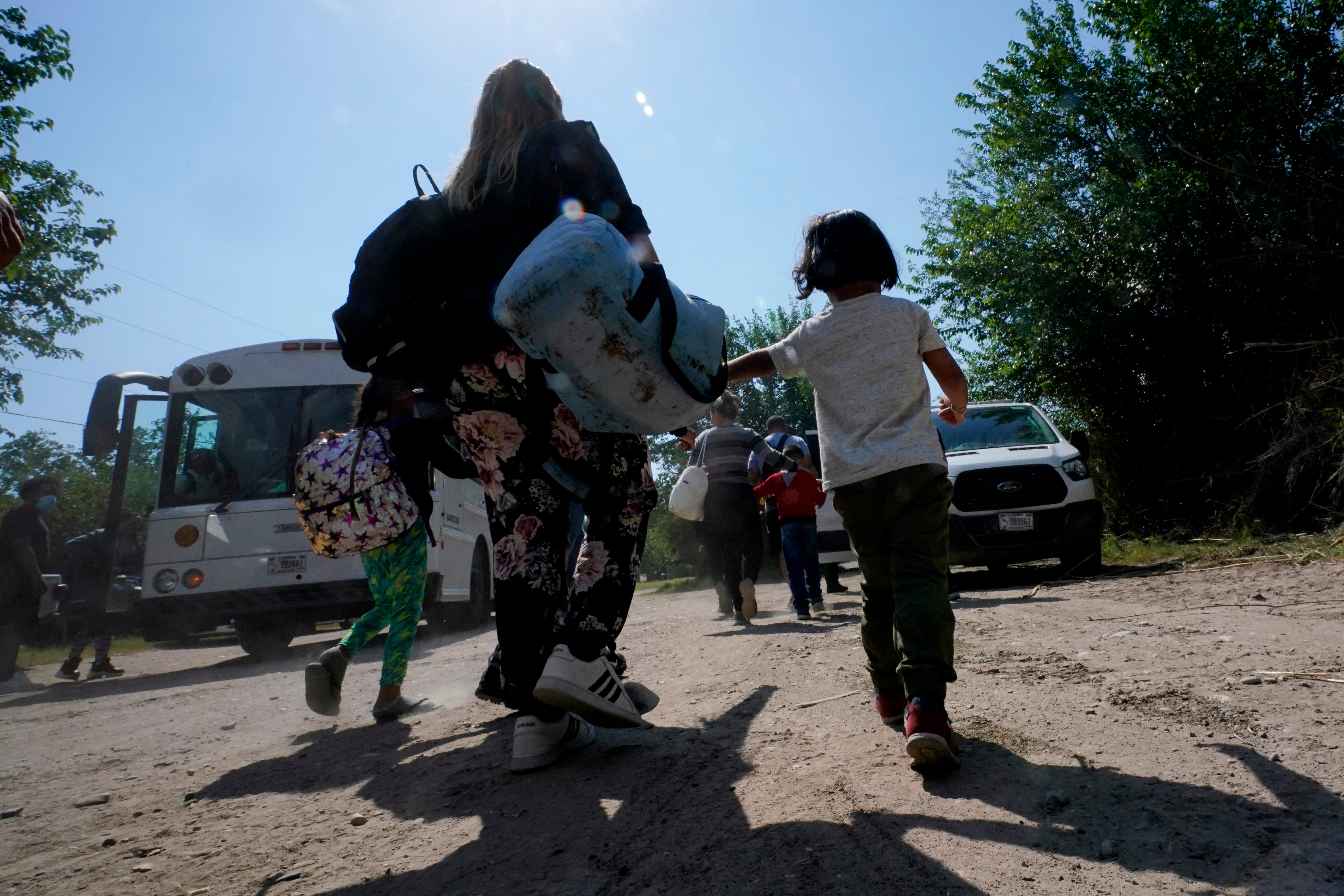US mulls Ukrainian-type parole for Venezuelan migrants
U.S. officials say the Biden administration is developing plans for Venezuelans with sponsors to be granted parole to enter the United States, similar to how Ukrainians have been admitted after Russia’s invasion

Your support helps us to tell the story
From reproductive rights to climate change to Big Tech, The Independent is on the ground when the story is developing. Whether it's investigating the financials of Elon Musk's pro-Trump PAC or producing our latest documentary, 'The A Word', which shines a light on the American women fighting for reproductive rights, we know how important it is to parse out the facts from the messaging.
At such a critical moment in US history, we need reporters on the ground. Your donation allows us to keep sending journalists to speak to both sides of the story.
The Independent is trusted by Americans across the entire political spectrum. And unlike many other quality news outlets, we choose not to lock Americans out of our reporting and analysis with paywalls. We believe quality journalism should be available to everyone, paid for by those who can afford it.
Your support makes all the difference.The Biden administration is developing plans for Venezuelans with financial sponsors to be granted parole to enter the United States, similar to how Ukrainians have been admitted after Russia's invasion, U.S. officials said Tuesday.
Four officials offered broad outlines of the plan to deal with a large increase in Venezuelans arriving at the U.S. border with Mexico. They spoke on condition of anonymity because they were not authorized to discuss the matter publicly.
Venezuelans who cross the border illegally on land would be immediately returned to Mexico, two officials said. Currently, Mexico only accepts migrants expelled under Title 42 authority — a pandemic-era rule that denies migrants rights to seek asylum and is designed to prevent the spread of COVID-19 — if they are from Guatemala, El Salvador or Honduras, in addition to Mexico.
Venezuelans who qualify for parole would enter the U.S. at airports, two officials said, mirroring a program introduced in April that allows Ukrainians with financial sponsors to stay for up to two years.
The officials strongly emphasized that discussions were fluid and plans could change. The plans were reported earlier Tuesday by CNN and The New York Times.
While major questions remain — such as how many would be eligible for parole and where Venezuelans would board planes — the discussions demonstrate concern about what has emerged as a major challenge to authorities in the U.S., Mexico and Central America and a test of a hemispheric agreement reached in June in Los Angeles for countries that host migrants to confront issues together.
The Homeland Security Department did not immediately respond to a request for comment late Tuesday.
Mexico's Foreign Affairs Ministry said it would release details when talks are final.
“We are in discussions about a new approach that includes migration from Mexico and the northern Central American countries, as well as Haiti, Cuba, Venezuela and Nicaragua, in an orderly manner and with access to employment options," the ministry said in a statement.
Venezuelans recently surpassed Guatemalans and Hondurans to become the second-largest nationality stopped at the U.S. border after Mexicans. In August, Venezuelans were stopped 25,349 times, up 43% from 17,652 in July and four times the 6,301 encounters in August 2021, signaling a remarkably sudden demographic shift.
An estimated 6.8 million Venezuelans have fled their country since the economy tanked in 2014, mostly to Latin America and Caribbean countries. But the U.S. economy’s relative strength since the COVID-19 pandemic has caused Venezuelan migrants to look north. Also, strained relations with the Venezuelan government make it extremely difficult to send them home under Title 42 authority, encouraging more to come.
Mexico, under pressure from the Biden administration, introduced restrictions on air travel to limit Venezuelan migration to the United States in January, but many then shifted to a dangerous land route that goes through Panama's notorious Darien Gap.
The plan being worked on would aim to discourage Venezuelans from the perilous journey by land and function like parole for Ukrainians. The administration has pledged to admit up to 100,000 people fleeing Russia's invasion and has already allowed tens of thousands, including nearly 17,000 in August.
“Uniting for Ukraine,” as the parole program is called, effectively ended a short-lived practice of people flying to Mexico as tourists and showing up at U.S. border crossings.
___
Associated Press writers Matthew Lee and Colleen Long in Washington and Maria Verza in Mexico City contributed to this report.